Our Kubernetes 1.6 cluster had certificates generated when the cluster was built on April 13th, 2017.
On December 13th, 2017, our cluster was upgraded to version 1.8, and new certificates were generated [apparently, an incomplete set of certificates].
On April 13th, 2018, we started seeing this message within our Kubernetes dashboard for api-server:
[authentication.go:64] Unable to authenticate the request due to an error: [x509: certificate has expired or is not yet valid, x509: certificate has expired or is not yet valid]
Tried pointing client-certificate & client-key within /etc/kubernetes/kubelet.conf at the certificates generated on Dec 13th [apiserver-kubelet-client.crt and apiserver-kubelet-client.crt], but continue to see the above error.
Tried pointing client-certificate & client-key within /etc/kubernetes/kubelet.conf at different certificates generated on Dec 13th [apiserver.crt and apiserver.crt] (I honestly don't understand the difference between these 2 sets of certs/keys), but continue to see the above error.
Tried pointing client-certificate & client-key within /etc/kubernetes/kubelet.conf at non-existent files, and none of the kube* services would start, with /var/log/syslog complaining about this:
Apr 17 17:50:08 kuber01 kubelet[2422]: W0417 17:50:08.181326 2422 server.go:381] invalid kubeconfig: invalid configuration: [unable to read client-cert /tmp/this/cert/does/not/exist.crt for system:node:node01 due to open /tmp/this/cert/does/not/exist.crt: no such file or directory, unable to read client-key /tmp/this/key/does/not/exist.key for system:node:node01 due to open /tmp/this/key/does/not/exist.key: no such file or directory]
Any advice on how to overcome this error, or even troubleshoot it at a more granular level? Was considering regenerating certificates for api-server (kubeadm alpha phase certs apiserver), based on instructions within https://kubernetes.io/docs/reference/setup-tools/kubeadm/kubeadm-alpha/#cmd-phase-certs ... but not sure if I'd be doing more damage.
Relatively new to Kubernetes, and the gentleman who set this up is not available for consult ... any help is appreciated. Thanks.
